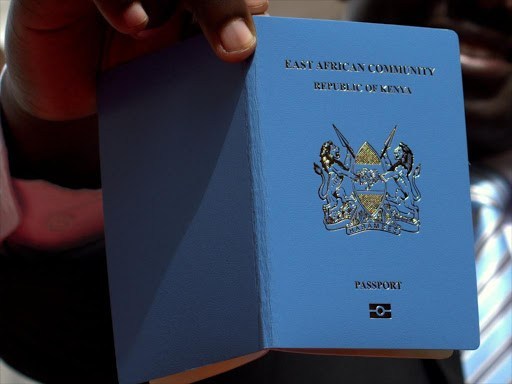News
Stateless Persons Who’ve Stayed in Kenya For Seven Years to Be Granted Citizenship
While Kenya’s Constitution recognizes citizenship by birth and registration, it does not specifically address stateless persons.

NAIROBI – Thousands of stateless persons who have called Kenya home for at least seven years could soon become citizens under a proposed law currently before Parliament.
The Kenya Citizenship and Immigration (Amendment) Bill, 2025, sponsored by Kilifi North MP Owen Baya, seeks to remove existing time barriers that have left communities like the Shona, Pemba, and Makonde in citizenship limbo despite arriving in the country as early as the 1800s.
“There are people who don’t know any other place than Kenya as home. We don’t want to continue keeping these people among us yet they cannot even get an ID,” Baya told the National Assembly committee on administration and national security while defending the legislation.
The proposed amendment would allow any stateless person with “habitual residence in Kenya for a continuous period of not less than seven years” to apply for citizenship registration.
Currently, the law requires applicants to have been lawfully resident since December 12, 1963 – Kenya’s independence day.
“Such people no longer exist. The majority of them have died and it’s their children who are around,” Baya explained, highlighting the impracticality of the current requirement.
The bill maintains existing conditions for citizenship applicants, including the ability to communicate in Kiswahili or a local dialect, a clean criminal record with no convictions carrying sentences of three years or more, and intention to remain permanently in Kenya.
Crucially, the legislation extends citizenship rights to children born to stateless parents, ensuring they can be registered immediately after birth under the Births and Registration Act.
The Shona, Pemba, and Makonde communities have remained stateless despite historical evidence of their presence in Kenya during the precolonial period.
Their limbo status has prevented access to basic services, employment opportunities, and banking facilities.
While Kenya’s Constitution recognizes citizenship by birth and registration, it does not specifically address stateless persons.
The proposed law would fill this gap by utilizing Parliament’s constitutional mandate under Article 18 to prescribe citizenship procedures.
International law provides frameworks for addressing statelessness through the 1954 Convention relating to the Status of Stateless Persons and the 1961 Convention on the Reduction of Statelessness.
However, Kenya is not a signatory to these treaties, making national legislation the primary avenue for resolving statelessness.
The bill awaits consideration by the parliamentary committee before proceeding to the full National Assembly for debate and voting. If passed, it would mark a significant milestone in resolving one of Kenya’s most persistent human rights challenges.
The legislation comes amid growing recognition of the need to address statelessness globally, with an estimated 12 million people worldwide lacking citizenship in any country.
Kenya Insights allows guest blogging, if you want to be published on Kenya’s most authoritative and accurate blog, have an expose, news TIPS, story angles, human interest stories, drop us an email on [email protected] or via Telegram
-

 Grapevine7 days ago
Grapevine7 days agoAlleged Male Lover Claims His Life Is in Danger, Leaks Screenshots and Private Videos Linking SportPesa CEO Ronald Karauri
-

 Lifestyle1 week ago
Lifestyle1 week agoThe General’s Fall: From Barracks To Bankruptcy As Illness Ravages Karangi’s Memory And Empire
-

 Grapevine3 days ago
Grapevine3 days agoRussian Man’s Secret Sex Recordings Ignite Fury as Questions Mount Over Consent and Easy Pick-Ups in Nairobi
-

 Investigations2 weeks ago
Investigations2 weeks agoEpstein Files: Sultan bin Sulayem Bragged on His Closeness to President Uhuru Then His Firm DP World Controversially Won Port Construction in Kenya, Tanzania
-

 News2 weeks ago
News2 weeks agoAUDIT EXPOSES INEQUALITY IN STAREHE SCHOOLS: PARENTS BLED DRY AS FEES HIT Sh300,000 AGAINST Sh67,244 CAP
-

 Business2 weeks ago
Business2 weeks agoKRA Can Now Tax Unexplained Bank Deposits
-

 Investigations1 week ago
Investigations1 week agoEpstein’s Girlfriend Ghislaine Maxwell Frequently Visited Kenya As Files Reveal Local Secret Links With The Underage Sex Trafficking Ring
-

 News1 week ago
News1 week agoState Agency Exposes Five Top Names Linked To Poor Building Approvals In Nairobi, Recommends Dismissal After City Hall Probe















